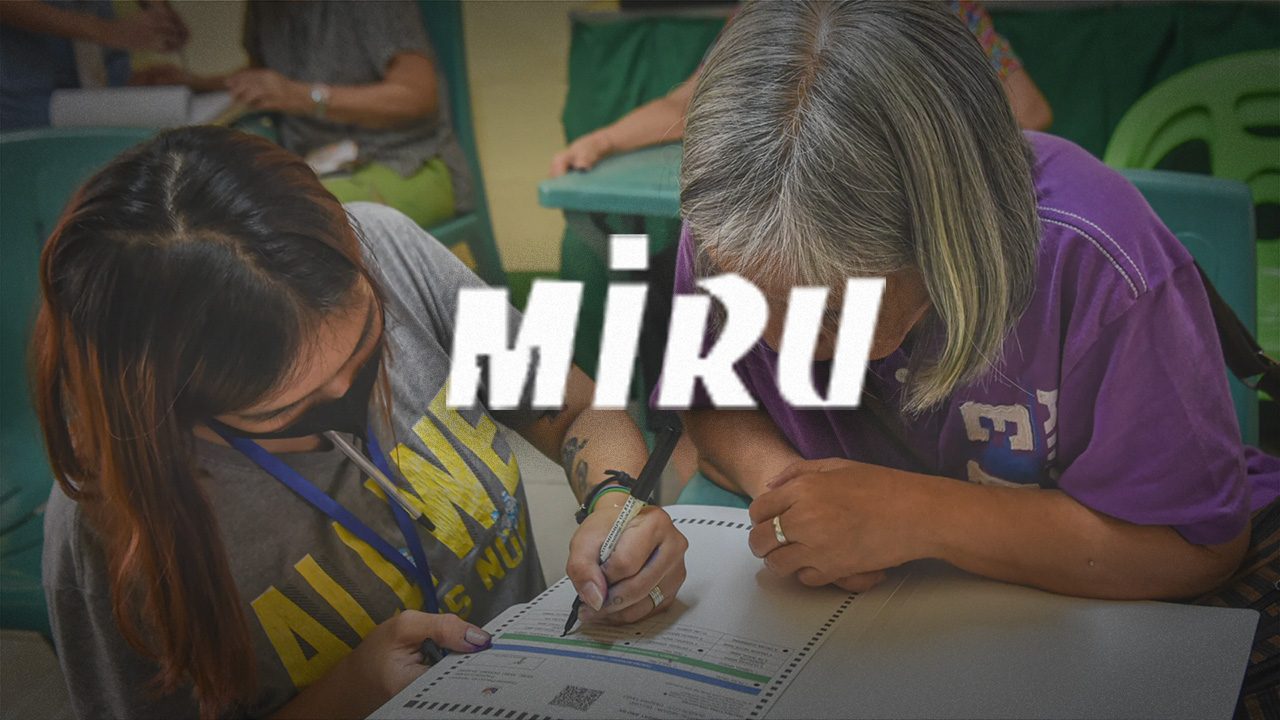SUMMARY
This is AI generated summarization, which may have errors. For context, always refer to the full article.

MANILA, Philippines – A South Korean company has inched significantly closer to winning the most important contract for the 2025 Philippine elections.
Miru Systems has overcome a major hurdle in the procurement process, after the Commission on Elections (Comelec) accepted its bid of P17.9 billion for the Philippines’ ambitious automated election reform project in the upcoming midterms.
So how did Miru achieve its front-runner status? The short answer is that there’s no competition.
Lone bidder
On Monday, January 8, the Comelec held its second round of bidding for the project called full automation system, with the transparency audit count, or FASTrAC, for short.
Prior to D-Day, six firms expressed interest in the project by purchasing bidding documents. These companies were:
- Dominion Voting Systems – Ifort City Center, Inc.
- Indra Philippines, Inc.
- AMA Group Holdings Corp.
- Electiotech Consultant and Management, Inc.
- SMMT-TIM 2016, Incorporated (Smartmatic)
- Miru Systems Co., LTD
Of the six, only Miru submitted a bidding proposal that was accepted by the Comelec.
In December and in January, Smartmatic attempted to make a submission, but was turned down both times by the Comelec due to a disqualification order rooted in its alleged involvement in a 2016 bribery scheme. (READ: Smartmatic decries ‘unfair disqualification’ in future Philippine elections)
Passing eligibility check
Just because Miru was the only company to throw its hat in the ring does not automatically mean it has won the contract.
In fact, the Korean firm was also the lone bidder in December, but insufficient documents at the first step of the bidding process resulted in the Comelec’s declaration of a failure of bidding.
This time around, Miru was able to fully comply with the documentary requirements, passing the eligibility check.
Assessing the bid
Afterwards, the Comelec opened Miru’s financial envelope, which contained the company’s bid for the project.
For every project, the procuring entity has an approved budget for the contract, and bidders must not go beyond that amount. Miru tendered a bid of P17.988 billion for the FASTrAC project, which has a maximum budget of P18.827 billion.

After manually computing Miru’s numbers, the Comelec declared Miru’s proposal the “single, calculated bid,” paving the way for its post-qualification evaluation.
Post-qualification evaluation
Miru’s documents will be evaluated beyond face value, and the company’s capability to comply with the technical requirements will be assessed.
According to Comelec spokesman Rex Laudiangco, Miru – within five days upon receipt of the notice of post-qualification evaluation – has up to 30 days to submit an original copy of its mayor’s permit, audited financial statements, and PhilGEPS (Philippine Government Electronic Procurement System) registration, among other documents.
“We can also go to government offices to validate their submissions,” Laudiangco said.
Miru Systems began in South Korea in the late 1990s, and has since provided election technology to its home country, as well as governments with struggling democracies, such as the Democratic Republic of Congo, Kyrgyzstan, and Iraq.
Its machines have been reported to be at the center of fraud allegations overseas, although Miru has shrugged off these claims.
What happens if Miru fails to pass post-qualification
Miru can still be post-disqualified if it fails to meet procurement guidelines and criteria being adhered to by the Comelec’s special bids and awards committees.
Companies have been post-disqualified in the past. It happened in 2021, when Pivot International outbid Smartmatic and advanced to the post-qualification evaluation stage for a machine refurbishment contract, only to be ultimately rejected by the poll body due to SD cards that were found to be incompatible during testing.
If Miru hurdles the post-qualification stage, it will be awarded the whopping contract. If it does not, the Comelec, said Laudiangco, has the option to either conduct a third round of competitive bidding or go through a negotiated procurement. – Rappler.com
Add a comment
How does this make you feel?

There are no comments yet. Add your comment to start the conversation.